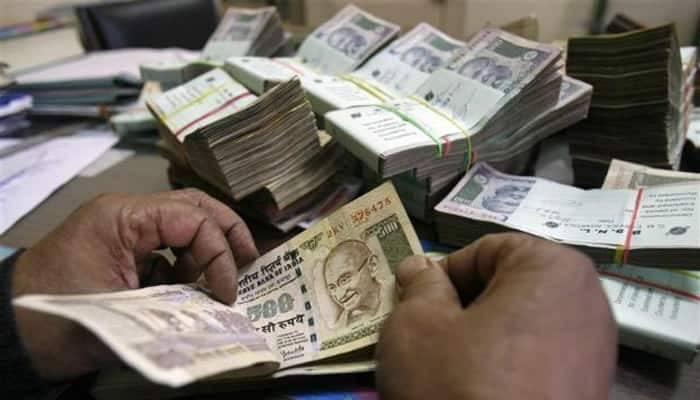Davos: The confidence level of chief executives worldwide about growth prospects of their own companies has fallen but Indian CEOs are among the most confident, says a new survey.
India has also become one of the five most promising overseas markets for the businesses globally, according to the annual global CEO survey of consultancy giant PwC released here at the WEF Annual Meeting.
The confidence level among Indian CEOs remains higher than the global average although they have also become less confident since last year about the growth prospects of their own companies.
As per the findings, CEOs are less optimistic about prospects this year and those who think global growth would improve over the next 12 months have declined to 27 percent from 37 percent seen in 2015.
Further, those who think the situation would worsen have increased to 23 percent from 17 percent.
Confidence in businesses' own revenue growth for the next 12 months has fallen with only 35 percent feeling 'very confident' compared to 39 percent last year.
"Against this tide of pessimism, CEOs in India (64 percent), Spain (54 percent) and Romania (50 percent) stand out as more optimistic," it said.
PwC India Chairman Deepak Kapoor said CEOs in India have given strong indication of general uplift in sentiments by showing much more confidence than their global counterparts when it comes to revenue growth for their companies.
"Recent policy reforms and a consequent pick up in investment and the government's aim to boost infrastructure are also playing a role in boosting CEO confidence," he noted.
However, Kapoor said the CEO community continues to be concerned by lack of infrastructure and over-regulation.
"With India as the fastest growing large economy in the world, it offers one of the best opportunities for both Indian and global companies in a world that is still coming to terms with a slower growth paradigm and increasing geopolitical uncertainty," he added.
While it has become more difficult to pin down where growth would come from, the survey said the US, China and to a lesser extent Germany and the UK, remain the countries that most CEOs cite as among their top overseas growth markets.
The top five markets considered as most important for overall growth prospects by the respondents are the USA, China, Germany, the UK and India.
"India, which has continued to do well under Prime Minister Narendra Modi's pro-business government, is now among CEOs' five most promising overseas markets," it noted.
The survey covered 1,409 CEOs spread across 83 countries.
As many as 476 interviews were conducted in Asia Pacific, 314 in Western Europe, 170 in Central and Eastern Europe, 169 in Latin America, 146 in North America, 87 in Africa and 47 in the Middle East.
"In the longer term, 78 percent of Indian CEOs are very confident of growth over the next three years, 7 points up on last year and 29 points higher than this year's global average (49 percent)," the survey said.
With respect to the global economy, 39 percent of Indian executives expect an improvement whereas the global average is 27 percent.
Around 75 percent of Indian CEOs believe there are more growth opportunities for their company today than three years ago.
About countries most important for their companies' growth in the next one year, 54 percent said it was the US while 29 percent respondents mentioned China and 23 percent went for the UK.
Ninety percent of the Indian CEOs cited inadequate basic infrastructure as a major threat and 80 percent mentioned exchange rate volatility and 77 percent cited over-regulation.
"Of business threats, 81 percent stated availability of key skills, 79 percent stated speed of technological change, 78 percent stated bribery and corruption," the survey sad.
As many as 56 percent of the Indian executives plan to implement a cost-reduction initiative over the next 12 months while 70 percent anticipate increase in head count during the same period.
When it comes to disruptive trends in their industry most likely to transform wider stakeholder expectations over the next five years, 80 percent of the respondents cited technological advances followed by demographic shifts (64 percent) and shift in global economic power (55 percent).
Around 64 percent of Indian CEOs felt that the government had been ineffective in achieving greater income equality.
About 51 percent thought that the government had been ineffective in reducing environmental impacts as well as in achieving a clearly understood, stable and effective tax system.
"93 percent of Indian CEOs agree that tax is a business cost that needs to be efficiently managed like any other business cost... 87 percent agree that a stable tax system is more important than low rates of tax," it said.
Around 81 percent agreed that reducing the administrative burden of tax is as beneficial as reducing tax rates.
With 79 percent of the CEOs concerned about over-regulation, it remains the biggest concern and is followed by geopolitical uncertainty.
The latter comes at a time when terror attacks are increasing and touching every part of the world, many linked to the heightened conflict in Iraq and Syria.
"Global conflicts are also connected to anxieties about social instability and readiness to respond to crises, named by 65 percent and 61 percent of CEOs, respectively.
"Cyber security is also a worry for 61 percent of CEOs, representing as it does (pose) threats to both national and commercial interests," the survey said.
As many as 66 percent of the CEOs see more threats for their companies than it was three years ago.
















